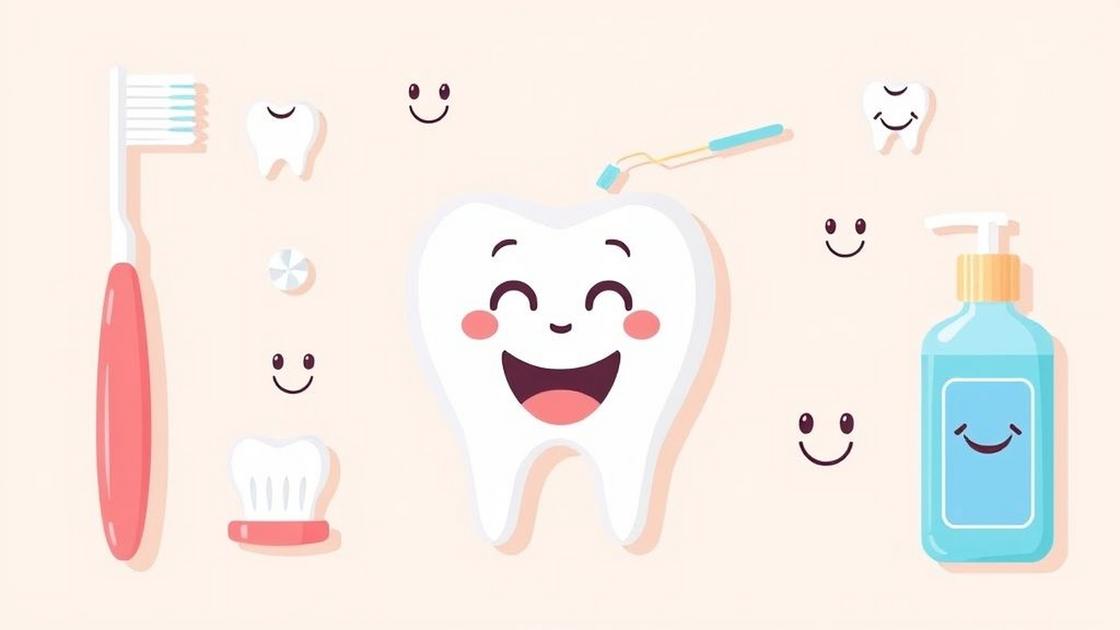As we age, especially after 30, our bodies undergo significant changes. Many women experience challenges that can impact their overall health, including teeth strength. Are you feeling concerned about the health of your teeth? You’re not alone! It’s common for women to seek solutions for maintaining strong, healthy teeth while navigating milestones like hormonal changes and the stress of daily life. Luckily, there are steps you can take to ensure your smile remains vibrant and resilient.
Understanding Teeth Strength and Its Importance
Teeth strength is critical for maintaining overall oral health. As we age, our teeth may become more vulnerable to issues like cavities, sensitivity, and decay. A strong set of teeth can support better chewing, which is essential for proper nutrition. Moreover, your smile is often the first thing people notice about you, making it vital to keep your teeth healthy and strong.
Additionally, a healthy mouth contributes to your overall health. Poor dental health can lead to issues such as gum disease and even affect your heart health. Therefore, understanding how to strengthen your teeth is essential, especially as you embark on this new decade of life.
Why Women Over 30 Need Special Care for Their Teeth
For many women, the years after 30 bring about significant changes. Hormonal fluctuations due to menopause can affect dental health. During this time, the estrogen levels drop, which can lead to a decrease in bone density, impacting the strength of your teeth. More than ever, it’s crucial to pay attention to oral care.
Women also face unique stressors that may lead to habits such as teeth grinding, which can wear down enamel and compromise tooth integrity. It’s essential to recognize these changes and take proactive steps to protect your teeth.
The Role of Nutrition in Dental Health
Nutrition plays a vital role in maintaining healthy teeth and gums. A diet rich in vitamins and minerals can promote strong teeth and help prevent dental issues. Sadly, many women do not consume the recommended amounts of these essential nutrients, which can hinder dental health. It’s never too late to start adjusting your diet to support your teeth.
Key nutrients support not only your teeth but also play roles in your overall well-being. Embracing a varied, balanced diet filled with wholesome foods can contribute to your body’s needs and enhance your dental strength.
Key Vitamins for Maintaining Strong Teeth
To maintain strong teeth, there are several vital vitamins you should prioritize in your diet:
- Calcium
- Vitamin D
- Vitamin C
- B Vitamins
Focusing on these vitamins will set a solid foundation for your dental health and can help you combat common issues that arise with age.
Calcium: The Foundation of Tooth Strength
Calcium is the most essential mineral for strong teeth. It provides the strength and structure needed to maintain healthy enamel. Enamel is the protective layer that shields your teeth from decay. A diet low in calcium can lead to weaker teeth and increase the risk of cavities.
To ensure you’re getting enough calcium, include foods like:
- Dairy products such as milk, cheese, and yogurt
- Leafy greens like kale and spinach
- Fortified plant-based milk alternatives
- Almonds and tofu
In your 30s, adequate calcium intake is crucial. Aim to incorporate calcium-rich foods into your daily meals to support your smile.
Vitamin D: Essential for Calcium Absorption
Vitamin D is vital for your body’s ability to absorb calcium effectively. Without sufficient vitamin D, your body cannot utilize calcium, no matter how much you consume. This vitamin helps maintain healthy bones and teeth.
Vitamin D is naturally obtained through sun exposure; however, it may be challenging to get enough sun, especially during the winter months. To boost your intake, consider:
- Fatty fish like salmon and mackerel
- Egg yolks
- Fortified foods such as cereals and juices
Additionally, supplements may be necessary if you find it hard to meet your vitamin D needs through food or sun exposure. Consult your healthcare provider for recommendations that suit your lifestyle.
Vitamin C: Supporting Your Gums and Teeth
Vitamin C is not only beneficial for the immune system; it also plays a crucial role in oral health. This vitamin promotes healthy gums and helps prevent gum disease, which can significantly affect your overall health.
Vitamin C boosts collagen production, which is vital for the gums’ structure and healing. A deficiency can lead to swollen gums, bleeding, and even tooth loss. To ensure you’re getting enough vitamin C, include foods such as:
- Citrus fruits like oranges and grapefruits
- Berries such as strawberries and blueberries
- Bell peppers and broccoli
- Kiwi and pineapple
Making these delicious foods part of your routine can enhance your gum health and contribute to stronger teeth.
The Impact of B Vitamins on Oral Health
B vitamins are often overlooked but play a significant role in maintaining oral health. They help produce red blood cells and support energy levels, both of which are crucial for a healthy body. Specific B vitamins, such as B6, B12, and folic acid, can boost oral health by keeping your mouth tissues healthy.
Low levels of B vitamins can lead to oral lesions, cracks in the corners of your mouth, and an overall unhealthy feeling. To increase your intake, look for foods that are rich in B vitamins:
- Whole grains like brown rice and oats
- Legumes such as lentils and beans
- Leafy greens and eggs
- Nuts and seeds
By incorporating these into your diet, you can promote not only your oral health but your overall vitality.
Lifestyle Changes to Complement Vitamin Intake
While vitamins are fundamental for strong teeth, lifestyle changes can significantly enhance your dental care routine. Here are a few tips to consider:
- Stay Hydrated: Drinking plenty of water helps wash away food particles and keeps your mouth moist, helping prevent decay.
- Limit Acidic Foods: Foods like citrus fruits and sodas can erode enamel. Enjoy them in moderation.
- Practice Good Oral Hygiene: Brush your teeth twice a day and floss regularly to remove plaque.
- Visit Your Dentist: Regular check-ups can catch issues early on, preserving your dental health.
These changes can enhance the benefits of the nutrients you’re consuming and help you achieve a radiant, healthy smile.
Transform Your Dental Health: A Step-by-Step Guide
Improving your dental health doesn’t have to be overwhelming. Here’s a simple roadmap:
- Assess Your Diet: Start by evaluating what you eat and find ways to include more vitamin-rich foods.
- Consult a Professional: Speak with a dentist or nutritionist to understand your unique needs better.
- Create a Routine: Establish a daily routine that includes oral hygiene and nutrient intake.
- Stay Positive: Remember, small changes can lead to significant results. Celebrate your progress!
You, too, can transform your dental health in a few simple steps, just like many other women. Embrace the journey to a brighter, healthier smile. Your smile has the potential to illuminate the room; now is the time to unlock it!






